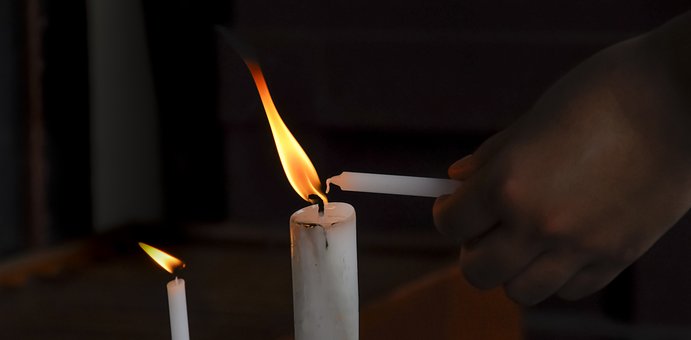There is an ancient proverb that says: “The devil never plays alone”. The story of the last 20 years speaks for him, including terrorism, genocide, environmental disasters and various horrors. Man is the great accused of the evils of the world, both when he himself is the victim of cataclysms (the paradigm of the anthropocene) or pandemics (wasn’t it we who altered the balance between human and animal habitat?) ‘original author of wars of aggression. Not to mention the cruelties we dispense every day, in the family, at work, in all the sick interstices of our communities, realms of traffickers, criminals, corporals, orcs and bluebeard.
Cain, therefore, has returned. Assuming he’s ever gone, as per the question mark of the title chosen for the twenty-sixth edition of Tertio Millennio Film Fest, at the Cinema Greenwich in Rome from 14 to 18 November: The return of Cain? The dubitative form, desired by the religious communities that collaborate with Cinematografo at the festival planning table, actually opens up to another suggestion, which questions the way in which secularized culture now trivializes the theme of Evil. As if it were enough to personify, to give the guilty name and surname, skin and language, wealth and culture, to explain the weeds that grow in the garden of Good and uproot it. Reducing the question to an etiological problem, identifying / removing causes, resolving it in an idea of justice that neither repairs nor heals: it cuts through (the abyss of places of detention are not the black hole of our legal civilization but if anything their light point: they reveal what we are).
But Cain keeps coming back and then there is more than one flaw in the containment strategy. As if all theories sooner or later end up stuck in the discursive irreducibility of their object. Does it make sense to still look for an origin of Evil? Isn’t this perhaps the cul de sac where theodicy first – with its dinner in apologetics, in a justificationism that suddenly appeared anachronistic in the eclipse of God of the modern age – and then philosophy – in not understanding that treating Evil as a speculative object meant not understanding it at bottom? The imponderable malignant also puts materialist currents in crisis, with classical Marxism genetically incapable of assuming the irrational, the chaotic and the contradictory within its own deterministic system; and the no-global and anarcho-environmentalist one totally concentrated on the effects of world imbalances, exhausted in a Manichaeism of mission, a counter-culture tic. Reason, Pareyson argued, is credible when it shows the incomprehensible.
It is therefore worth trying another approach, that is to explore and think about the experience of evil in its giving, in its aporias. A phenomenology that restores the link with actions and emotions. Thinking “otherwise” about evil means on the one hand keeping all its pieces together, accepting complexity not as an obstacle but as a landing place. This is the meaning of the interreligious conference preparatory to the actual festival of November 14, when in the Waldensian Church of Piazza Cavour Catholic, Protestant, Jewish, Muslim, Buddhist and Hindu theologians will share the sapiential richness of their traditions. But it is in art, specifically cinematographic, that Evil can be given in a form that is not speculative but empathetic, not metaphysical but mysterious.
Of the many faces that Cain takes on in the works that make up Tertio’s billboard – 11 feature films that will be judged by the jury chaired by Susanna Nicchiarelli and 8 short films by the one led by Ciro De Caro – there is not one more representative than others: Evil it does not end in any of its allegories. If anything, the victim’s scandal prevails and is significant. While there is still talk of fascination with villains, these films “welcome” the cry of the innocent. Whether it’s a scream that rises to Heaven (The Innocentyesthe pact of silence), of moral rebellion (The civil, Ariyippu, Autobiography, Victim) or apparently useless sacrifice (Those two, Speak No Evil, The origin du mal), cinema (preferably genre, preferably horror) knows how to rethink evil as an ontology of good and a means of the sacredness of the victim.
Up to the absurdity of an absolute resilient (it is no coincidence that the Fuoricampo Award of the three Italian film and religion festivals – TMFF, Religion Today and Popoli e Religioni – is awarded this year to the biopic on a saint, Clear of Nicchiarelli). It is the intolerable violence, the imposed suffering, the senseless death that triggers processes of identification that from emotional become spiritual, questions of meaning that need to be thought, reflected, examined.
It is Abel’s ulteriority in Cain’s eternal return.

